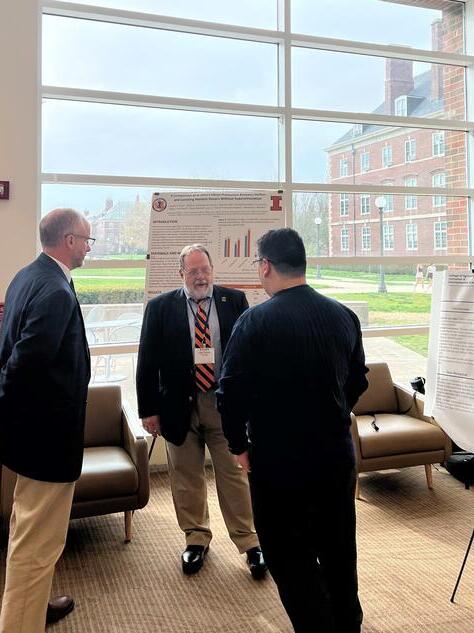Ensuring food security in the tropics through livestock genetic improvement is goal of symposium

Animal scientists, economists, and colleagues from the humanities and other fields met on the University of Illinois campus in April to focus on livestock in the tropics and its role in food security.
The event marked the Seventh Annual International Food Security Symposium at Illinois facilitated by the Office of International Programs (OIP) in the College of Agricultural, Consumer and Environmental Sciences (ACES).
Each year the OIP selects a partner to work with to explore in depth a specific aspect of international food security. This year’s symposium was co-hosted by the Department of Animal Sciences and the Center for African Studies. Ten presentations spanned a wide range of topics built around the theme of “Ensuring Food Security in the Tropics Through Livestock Genetic Improvement.”
View the recorded presentations here.
View the symposium program and speaker bios here.
Students, faculty, and staff as well as visitors from other universities and around the world presented and listened, asked questions, learned from each other, and made plans to work together moving forward.
Additionally, a poster presentation showcased ongoing research work led by students in the College of ACES.
The true value of the symposium will be ongoing as the connections made will foster future work to meet the challenges presented.
“We’ve already started talking about future collaborations with the speakers and others,” noted Crystal Allen, who along with Matt Wheeler led the symposium team from the Department of Animal Sciences.
Wheeler closed the symposium by telling a story of being in on a farm in Northeastern Brazil where the 16,000 cattle ate only cactus (cut into small pieces) and were milked by hand every day. Using this story as just one example, Wheeler said, “Dairy farmers will find a way. And we can all be involved in dairy finding a way. It’s not going to be easy. It’s not going to be tomorrow. But we can do it if we want to and can work together.”